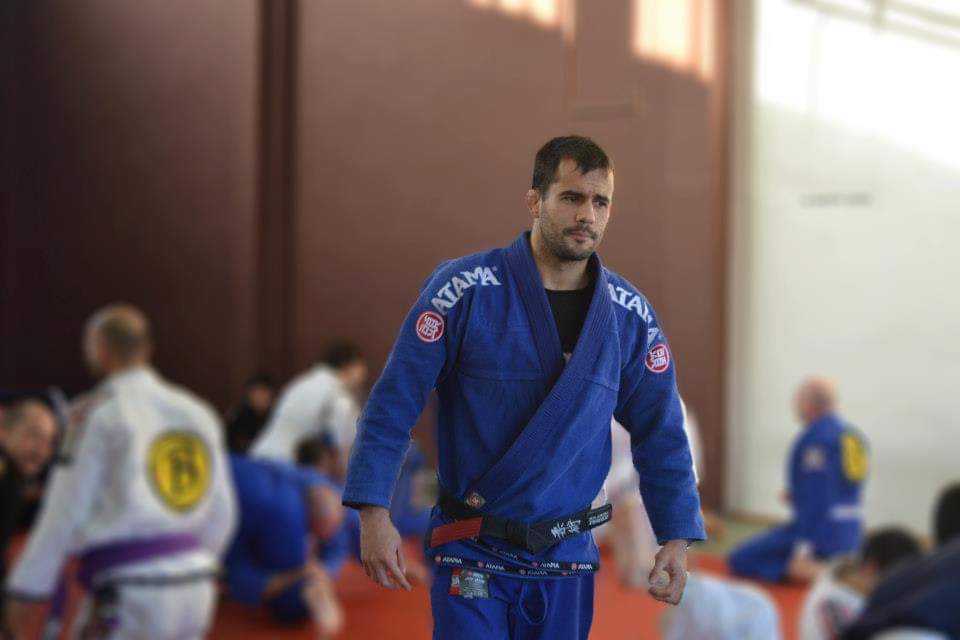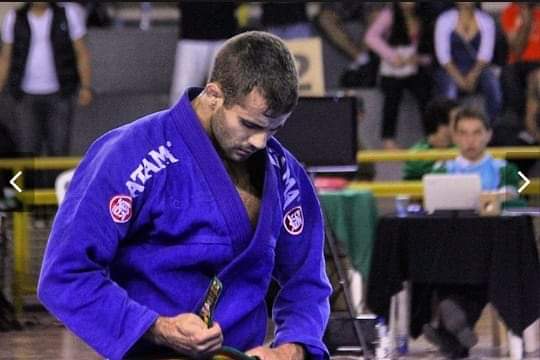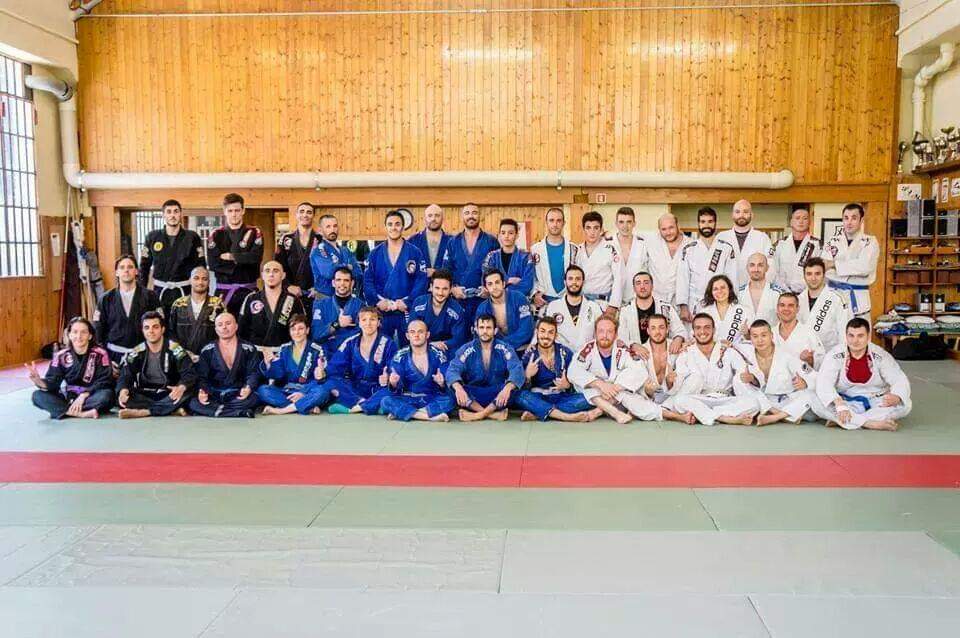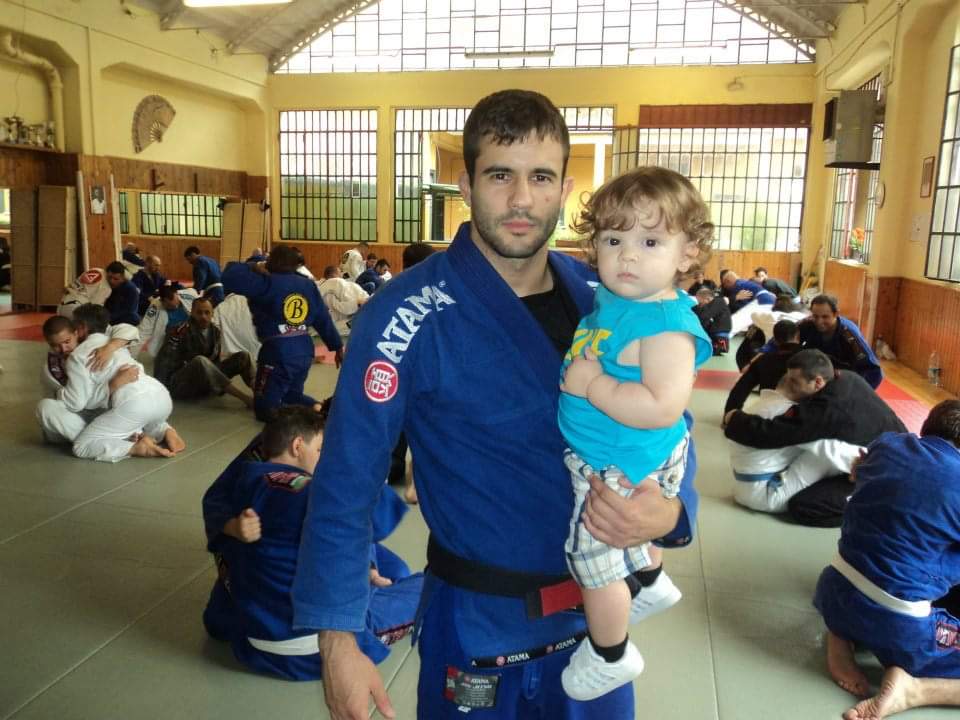
Read the interview below. Photo: Personal archive
“With love, focus and discipline, no goal is impossible and no objective is unattainable” teaches Ivan Rocha, renowned teacher on the Jiu-Jitsu world scenario. Known as “Cabecinha”, Ivan uses his experience, accumulated over 22 years in the gentle art as an athlete and instructor, to guide and encourage students to show their best results on and off the mats.
With 15 years invested in teaching Jiu-Jitsu, Ivan was one of the pioneers of the sport in Italy, where he led and strengthened Gracie Barra Milan, establishing the team’s status as one of the strongest in the region. Despite his success in the competitive sphere, Cabecinha saves his fascination for the transforming power of Jiu-Jitsu and emphasizes how the gentle art has the potential to change everyone’s lives, regardless of individual characteristics and difficulties.
Firm in his mission to build a better world through Jiu-Jitsu, Ivan chatted with GRACIEMAG to explain how the gentle art helps him touch the lives of his students, the importance of dedication and love in the sport, and how the passion for teaching contributed to his evolution on the mats. Check the lines below!
GRACIEMAG: How was your start in the sport?
IVAN ROCHA: My first contact with Jiu-Jitsu was on television, watching the Gracie family fights in Pride. As I already knew the martial art, I didn’t hesitate when a friend invited me to a training session at his house. I was 17 at the time and spent a week at his house, training and falling in love with Jiu-Jitsu. The sport moved me in an unprecedented way, so it didn’t take me long to look for a Jiu-Jitsu team and start training for real. That’s when I met Professor Caveirinha, who at the time led Gracie Barra Caveirinha in Belo Horizonte, and took the first step in my career in Jiu-Jitsu.

Tying his belt after a duel. Photo: Personal archive
As soon as practice started, were you interested in competing?
I’ve always been very competitive and one of the factors that attracted my attention to Jiu-Jitsu was the fact that anyone, regardless of age or fitness, could compete. I fought my first championship when I was still a teenager, with two months of training and weighing 64Kg. It was a unique feeling, a mix of excitement and joy that fueled my growing passion for Jiu-Jitsu. I competed a lot until the purple belt, but I decided to dedicate myself more to classes and ended up slowing down at brown and black. I wanted my students to feel the same joy I felt in Jiu-Jitsu, so I preferred to devote my time to nurture this feeling of achievement in each of them.
In what year did you get your black belt and from whom? What is the best memory of this day?
I earned the black belt in 2010, at the hands of my friend Alexandre Batatinha, in Italy. After ten long years of Jiu-Jitsu, receiving the black belt with a full mat, surrounded by students and friends, was a unique and inexplicable experience. The energy that day was just friendship, joy, and partnership, I could feel that everyone was happy for my achievement. In the face of all that, I couldn’t stand it and cried like a child (laughs). I always say that the emotion of that day is second only to the birth of my son, which was the most emotive day of my life.

“I wanted my students to feel the same joy I felt in Jiu-Jitsu, so I preferred to devote my time to nurture this feeling of achievement in each of them”. Photo: Personal archive
You mentioned earlier that your competitive career ended up taking a back seat, with the occupation of teaching becoming your priority in Jiu-Jitsu. What is this change due to?
It’s difficult to play these two roles with excellence, due to the physical and mental effort that Jiu-Jitsu requires from its practitioners. I had a drop in my performance as an athlete, but in exchange, I received a lot of experience and evolution as a teacher. It is very gratifying to see my students overcome challenges and fight with the passion to win the podium. This emotion is something I was able to feel frequently, given the strong and competitive team I formed in Italy. My students participated in almost all championships and I had the honor of watching their achievements at home and abroad. For a teacher, this is a priceless experience, it is the dream of every professional who is dedicated to teaching. Seeing my students reach victory is something that completes me and makes me happy.
What is the best lesson from your time as an athlete that you always pass on to your students?
I like to emphasize the importance of doing our best in everything we do. With love, focus and discipline, no goal is impossible and no objective is unattainable. I learned this in my competitive phase when I fought avidly and without giving importance to difficulties, always focused on the joy of victory. I teach my students that technique and will go hand in hand, always relying on each other for you to be triumphant. These two factors only depend on dedication, which in turn depends on just how much you want to be victorious.

Ivan and his son on the mat. Photo: Personal archive
What is the key to having a successful Jiu-Jitsu team?
I believe that the success and evolution of a team depend a lot on how much the leader loves his work and is dedicated to it. When the teacher feels love for their craft and propagates positive values, such as discipline and respect, students begin to feel pride and gratitude for being part of the team. These are the feelings that drive these practitioners and increase the performance of each one of them as athletes. All this is part of the teacher’s love, because those who love are dedicated and seek to evolve, to give their best, and instigate their students to do the same.
With your many years of experience in Jiu-Jitsu, how has your view of the gentle art changed since your time as a white belt?
Today I have a deeper understanding of Jiu-Jitsu. It’s more than a sport, it’s a lifestyle aimed at forming good people, with strong minds and healthy bodies. I want everyone to have the opportunity to experience what Jiu-Jitsu provides, as it goes far beyond well-being. I am very grateful for having known this martial art and for knowing that, through it, I am contributing to making my students’ lives better, forming balanced people, and, in this way, doing my part to create a better world.

